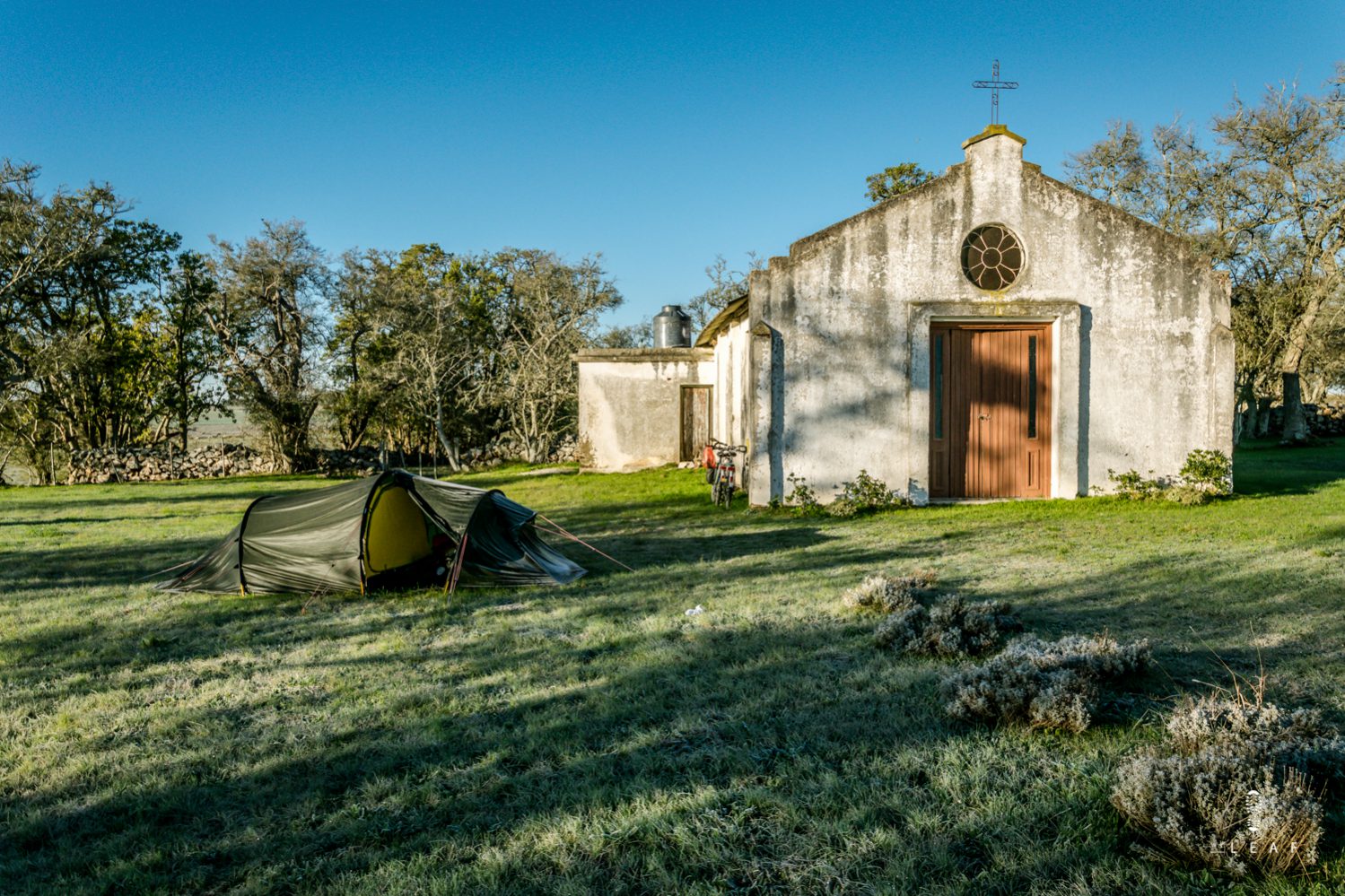
A warm silence

Paulo Silva
July 28, 2017
The old railway
August 25, 2017
July 7th - 9 o'clock in the morning
The world is still covered in a dense fog when we step on the bicycles early in the morning. There last two short kilometers to the Uruguayan border, which lies in the middle of a historic bridge. With a stamp in our pasport we cycle smiling over te bridge, ready for country number ten. We survived three months in the, like Brazilians say, dangerous Brazil. Now it's time for a new country, new culture and a new language. The first meters we cycle through the tax free shopping walhalla where all the Brazilians come to buy cheap cloths and electronics. After this the houses disappear and cars die out. An unrecognizable silence glides over the rolling landscape. Suddenly we can hear the sound of our tyres on the asphalt and our chain which rattles smoothly. What you can't hear, is abundant here, silence.
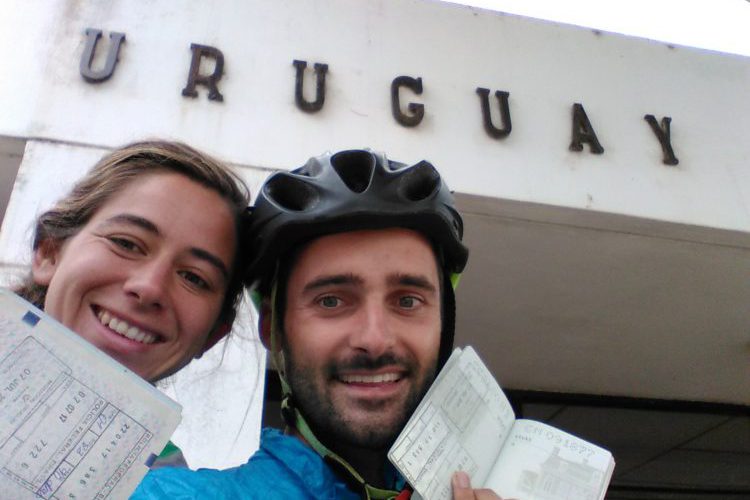
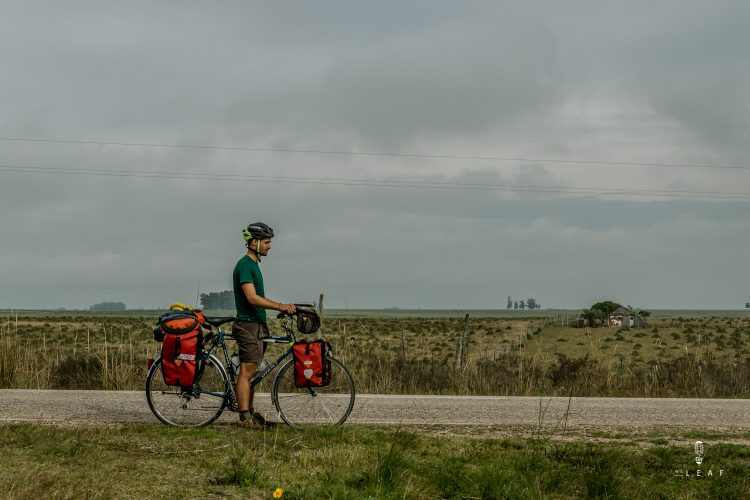
In Brazil people told us that Uruguay will be the opposite, silence and safety compared to noise and danger. In the vast landscapes wild camping doesn't seem to be a problem, but for the first night we want to play safe and knock on the door at one of the rare houses next to the road. Beatriz lives in the big rectangular building, which operates once a month as the office for the local cattle market. The market place exists out of a small arena surrounded by stands where the farmers inspect the animals which are sold by auction. We can sleep inside in the market office and get served a delicious Uruguayan farmers meal, while the maté goes from mouth to mouth. Beatriz is inspired by our active lifestyle and healthy bodies. She promises Zoë to sell one of her cows and buy a bicycle to improve her health. When we leave the next morning, Beatriz can't hold her tears and marks the start of our meeting with the local culture of Uruguay.
The road to Melo curves through the landscape while we enjoy the tranquility on the roads. The enormous fields where the fences on the other side are invisible and the smooth hills reminds us of the Mongolian landscape. A few farms are painted in the landscape and gauchos are riding on horses everywhere. The big hat from the Brazilian gaucho is replaced by a Bask hat, which they take off graceful to say hello. Amazed we look at this local culture, which is always replied by the same look when they see us with the bicycles. In Melo we ask a cheap place to sleep, but Nelba immediately tells us that they don't exist here. She lives alone and if we want we can sleep in her house. It looks like a normal thing to invite strangers in your house. For three days we live inside a small apartment in Uruguay.
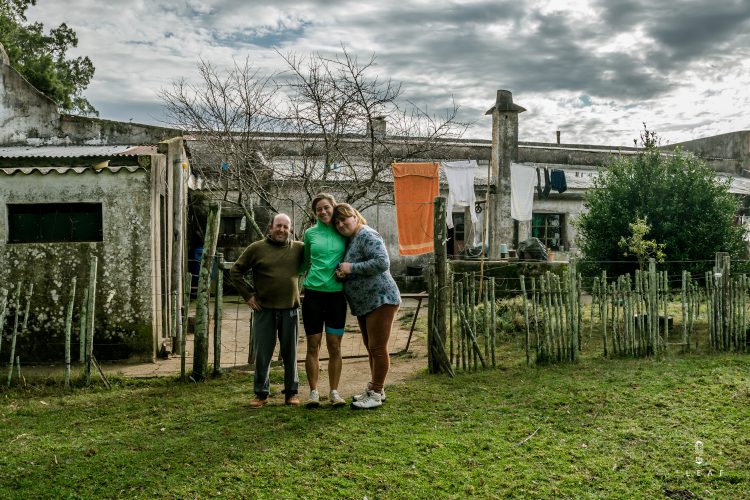
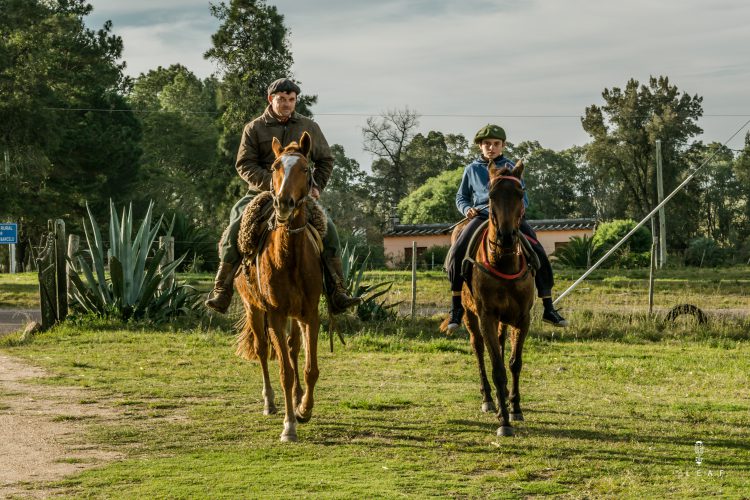
We are cycling through the interior of Uruguay on purpose. After the Brazilian beaches we have enough sand between our toes. Searching for some local and authentic culture it appears to be the annual horse racing event, a raid. It is enormously popular in Uruguay, but unknown in other countries. It are marathon races on the public roads with distances of at least 80 kilometer. In Melo the race is divided in two parts, 60 and 30 kilometers. The overal fastest horse wins the race and goes home with a fair amount of prize money. After the first race almost half of the horses are rejected to continue the race, advised by the veterinarian who checks the physical state. Only a dozen of horses start the second race of 30 kilometer. Every jockey has a support car loaded with the full family and a big water tank in the back to cool down the horse during the race. Age categories or differences between male or female horses don't exist and every jockey has his specific style. The whole happening has similarities with a cycling event and is even broadcasted on radio and television. At the finish line we are waiting for an intense battle, but after such an exhausting race the participants drop in one after each other while the crowd is bawling alongs the side. The horses are exhausted and some of the jockeys have to push the horses to the limit to cover the last 100 meter. We don't know if it is healthy for the horses, but it is definitely spectacular. We are inviting for the winners ceremony the next day and get a place at the main table, served a traditional Uruguayan meal and have to take some photos will everybody. Everywhere we come our bicycles attract a lot of attention and open doors to unknown experiences. They are our key to explore to country and its culture.
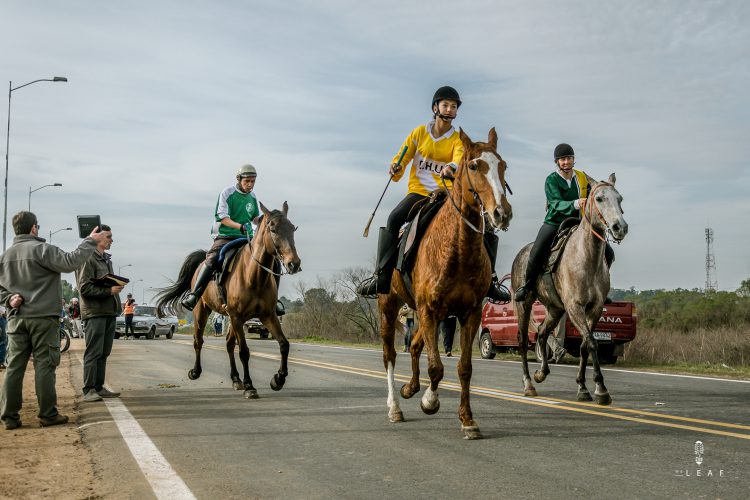
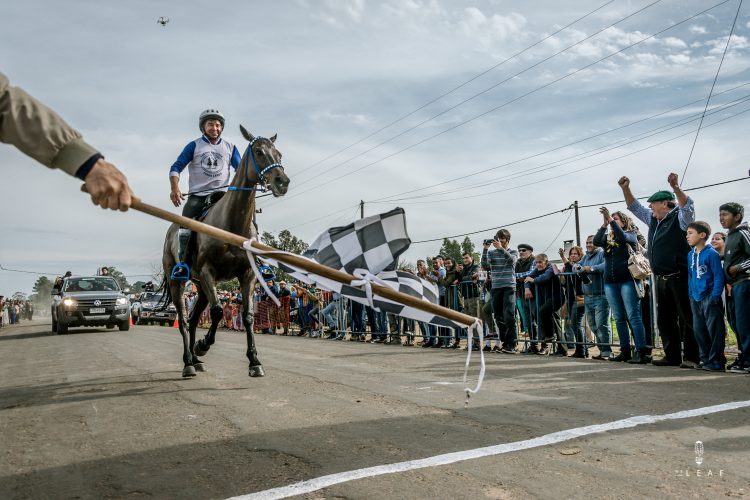
A couple of days later our bicycles open a new door. Just outside Cerro Chato we ask some people for a place in the garden. Antonio is happy to invite us, if we want to cycle one kilometer back to his house. Half an hour later we are sitting warmly inside in front of a fireplace where a traditional Uruguayan parilla is grilling. It doesn't take long before Alicia and Antonio know that we eat a lot, like to drink milk and love dulce de leche, a creamy caramel pasta which is popular in South America. We get an infinite amount of delicious food and Antonio says every time "suerte que me encontraron" when he sees us enjoying this feast. We leave the village as local celebrities after an interview on radio and television. Again the tears are rolling, this time it is Alicia, grandma and her sister.
The next honderd kilometer we have dirt roads through the interior. We see two farmers with hot irons burning a mark on the cows they just bought. Proudly they tell us they are modern because in the past the heating of the iron was done with a wooden fire, but now they have a gas fire. The process looks painful for the cows and leaves a wound with the emblem of the farmer. Fortunately after this the cows have a good life in front of them, grazing in the green fields. There are almost no houses in this area and a single farm is always far away from the road and protected with a big gate. Finally we see some sparkles of life when three men are working on a new construction to load the cows into the trucks. We can pitch our tent in their field and have just enough time to cook our meal while the cows and sheeps are watching curiously. Wild camping is not so easy here. All the land is private property from big farms and well protected by endless fences. Other houses are often holiday houses from the rich people and the servants that are living on and maintaining the property can't allow us to sleep in the garden without the padron's approval. Sometimes we have to cycle a lot of extra kilometers to find a sleeping place.
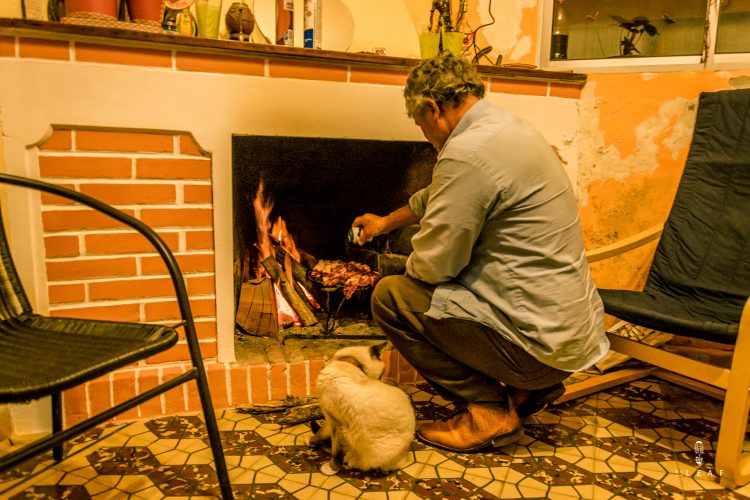
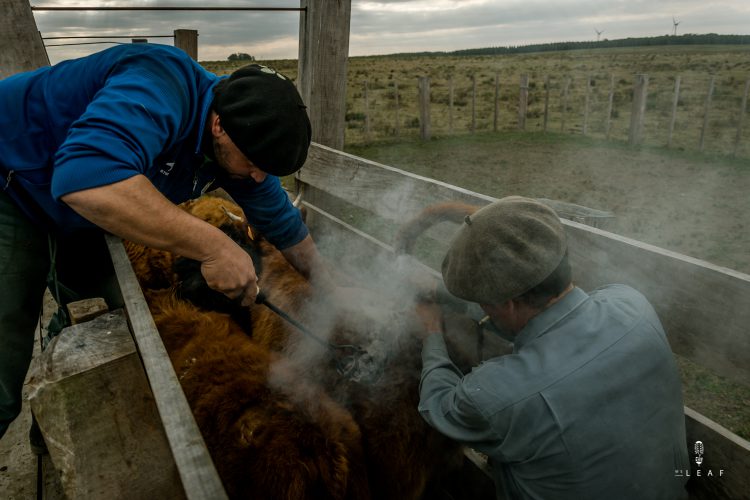
In Duranzo it is a lot easier. We knock on the door of some friends from Alicia in Cerro Chato and can avoid a cold and wet Sunday on the bicycle. Also in this family it is almost impossible to process all the food we get. With some extra kilograms we start cycling again on Monday. South America is captured in extreme cold weather. Well protected we are shivering on the bicycles and fight against the terrible cold wind. In the evening we end next to a little church and prepare ourselves for an ice cold night. The next morning the ice falls of the tent while the world around is covered in a frozen white layer. If this headwind and freezing temperatures are an introduction to Patagonia, we have a huge challenge in front of us. In the evening we have to cycle again ten kilometers extra to find a place to sleep. When we finally see a farm with some people outside, we start waving at them. A man limps in our direction and needs almost five minutes to cover the one hundred meter to the gate. His name is Ruben and he is paralysed on one side due to a cerebral haemorrhage. We can sleep in the house but have to wait an hour until the landlords are gone, because he is only the servant who maintains the land. Once every month the landlords are coming to see how it is going. One hour later we are drinking maté together and Ruben can't stop talking in his, sometimes difficult to understand, dialect. That night we sleep secretly in the landlords's bed, while Ruben enjoys our company.
Our last stop in Uruguay is Colonia del Sacramento, a historical city on the shore of Rio de la Plata, where ages ago all the ships with silver departed to Europe. The river looks more like a sea because the other side is 35 kilometers away. First we have to cover 70 cold and windy kilometers to arrive in Colonia and reach a new goal. Porto Alegre and Brazil look like a week ago but we have already cycled another 1.200 kilometer and more than 6.000 in total. Despite the peacefulness and tranquility in Uruguay, time also flies here. Just before we board the ferry to Buenos Aires we get two messages. Alicia let us know that she will take English classes to travel to Europe. And Beatriz sends us a picture of her new bicycle. It is amazing that we inspire people by just being ourselves and empower small changes in their lives.
On the other side you can see the contours of the high rise buildings in Buenos Aires. One last time with breath the tranquility of Uruguay, which we will exchange for the business of this megacity. We have to do our best to spent all our Uruguayan money. The 300R (€100) that was left from Brazil and we changed at the border, where enough to cycle two weeks in Uruguay. With a big package of dulce de leche we say goodbye to Uruguay, ready for number 11.
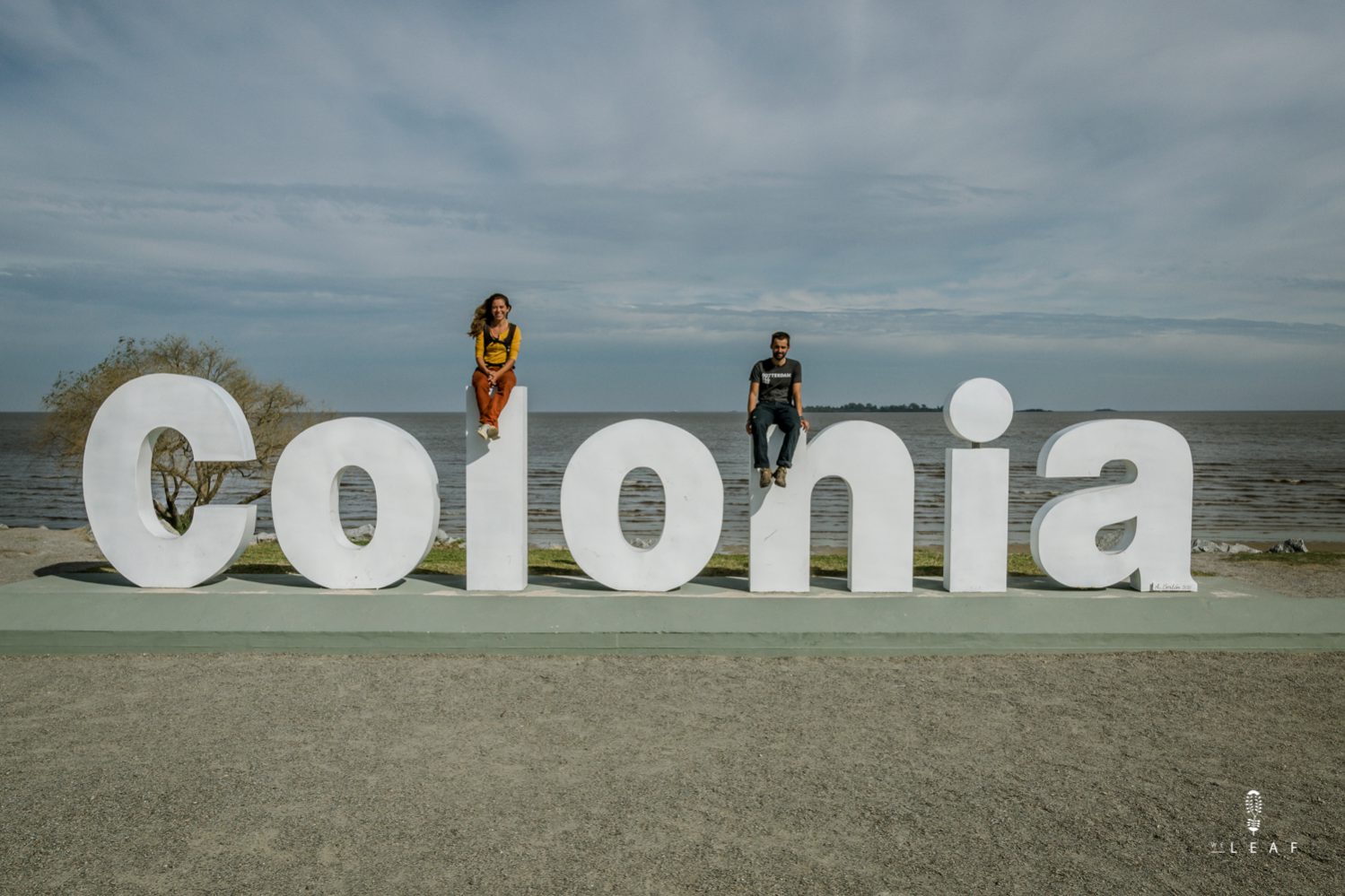




3 Comments
Hola mi nombre es Karina, soy de Cerro Chato , ese pueblo hermoso y con gente entrañable al q han visitado, hace 16 años vivo en Barcelona
Y me encantaría leer todos los post que habéis colgado, pero mi inglés es muy malo ?
De qué manera puedo traducirlo al español
Sigan disfrutando de nuestro hermoso planeta , del cual creo no deberían existir fronteras
Que hermosas historias! es admirable el viaje que están haciendo, realmente no cualquiera se anima a semejante travesía. Un placer haberlos cruzado por Buenos Aires, ojalá nos volvamos a encontrar. Besos a los dos!
Gracias Ilí! Que lindo que puedes entender nuestro historias. Tenemos hermosa memorias a Buenos Aires, vos y la familia! Esperamos un dia que nos volvamos a encontrar!